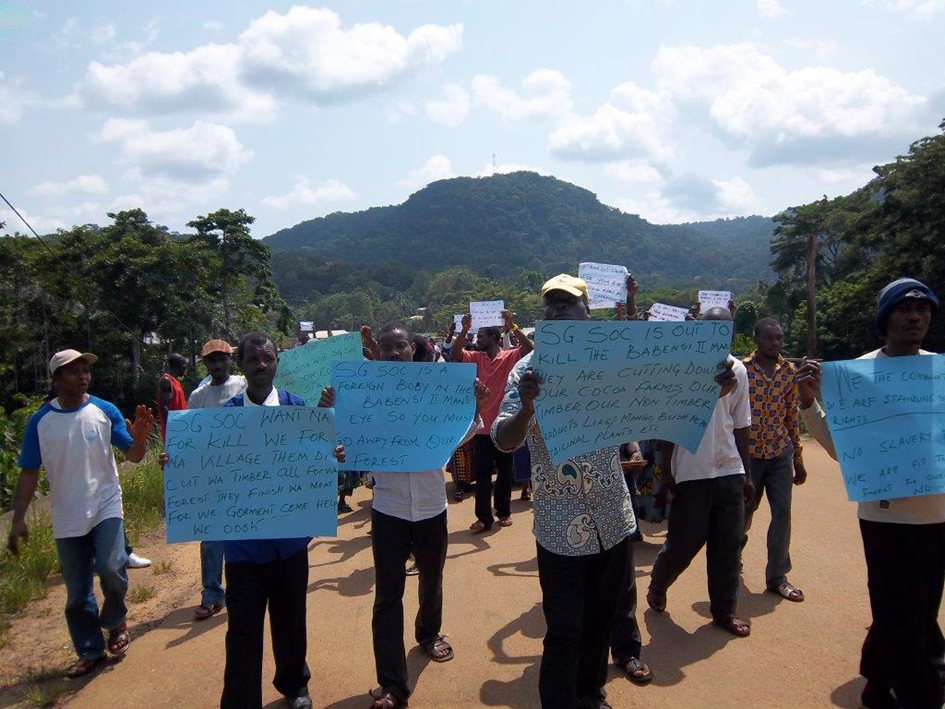By Joséphine Maidjane Mbara and Jaff Bamenjo | RELUFA, Joining Hands Cameroon
The frequency of large scale land acquisitions for agro-industry projects has been exponentially on the rise in most African countries for the past decade. Land deals are always portrayed by investors and government agencies as necessary to improve economic growth and expand local employment. However, local communities impacted directly by such projects have not experienced the development improvements promised.
One case in point is the palm oil project promoted by Sithe Global Sustainable Oils Cameroon (SGSOC), a local subsidiary of the American company Herakles Farms, that signed a contract with the Cameroonian government in September 2009 for the establishment of a large palm oil plantation and refinery. The initial land agreement between SGSOC and the State of Cameroon granted 73,086 hectares of land (180,600 acres) to the company in the Ndian and Koupe-Manengouba divisions of South Western region of Cameroon for a 99-year lease period.
As soon as the project was announced, local communities affected by the project expressed their opposition and engaged in advocacy campaigns to persuade the government to revise its decision. Local communities were accompanied in this resistance by national and international civil society organizations were anchored in part by the fact that SGSOC had been operating illegally since 2009. Cameroon land law requires that the president of the Republic sign any concession above 50 hectares, and the SGSOC agreement was not signed by the president, but by a state minister. Further, the processes leading to land acquisition by the company did not secure the free, prior and informed consent of the local communities – this is the definition of land grabbing.
In an effort to reinforce the advocacy campaign, the Center for Environment and Development and the Joining Hands network in Cameroon, RELUFA, published a report in 2012 entitled The 13th Herakles Labour. The aim of the report was to illustrate the problems inherent in the agreement signed between SGSOC and the government, notably the illegality of the contract, the large scale, lengthy lease, low land rents paid by the company, and the skewed land acquisition processes which lacked transparency and excluded local community participation.
Following sustained advocacy campaigns by RELUFA and other civil society organizations, the president intervened on November 25, 2013, and revised the agreement, reducing the SGSOC land concession area to19,743 hectares (48,786 acres) for a 3-year renewable provisionary concession period.
Following the presidential decree, the 3-year provisional concession period elapsed in 2016 and has not been renewed by the president as expected. Therefore, the SGSOC is currently illegally operating its palm oil project.
Impacted communities are demonstrating that community mobilization can be very powerful and they are hopeful that they could get their lands back.
